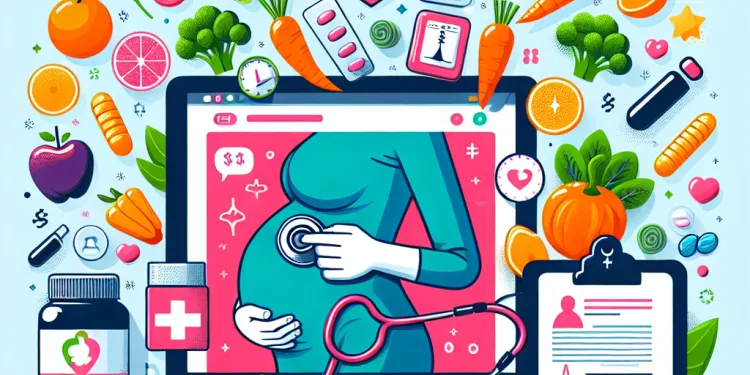
Find Help
More Items From Ergsy search
-
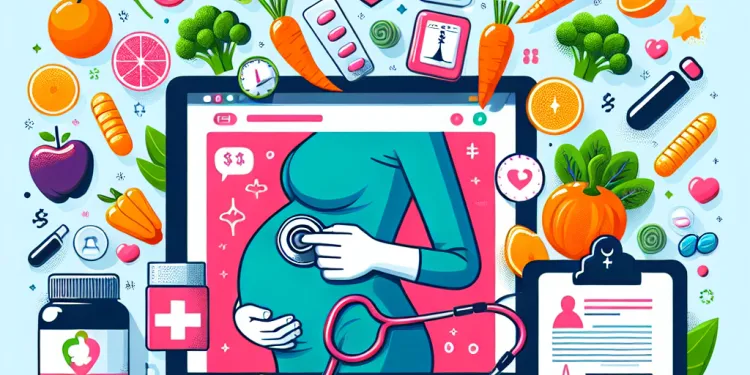
Nutrition for Pregnancy: What to Eat
Relevance: 100%
-
What is an eating disorder?
Relevance: 53%
-

Are there any nutrition guidelines for Hyrox participants?
Relevance: 51%
-
Can eating disorders be treated?
Relevance: 51%
-

Eating disorders: treatment
Relevance: 50%
-

The treatment approach for an eating disorder
Relevance: 49%
-
Are there preventative measures for eating disorders?
Relevance: 47%
-
What is an Eating Disorder?
Relevance: 46%
-
What are the main types of eating disorders?
Relevance: 46%
-
Is it possible to recover from an eating disorder?
Relevance: 45%
-
What is the role of therapy in treating eating disorders?
Relevance: 44%
-
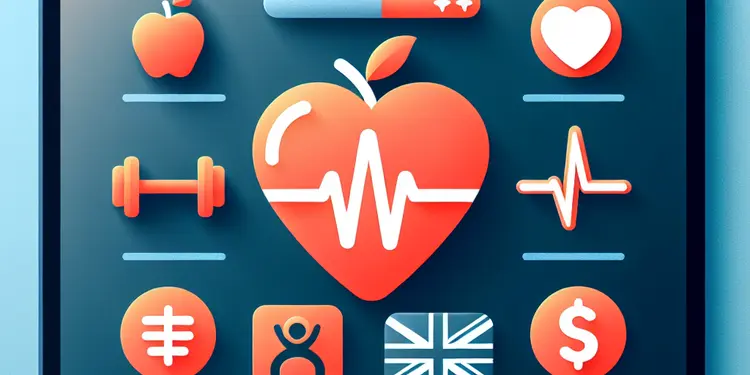
What is the impact of eating disorders on physical health?
Relevance: 44%
-
How can someone seek help for an eating disorder?
Relevance: 44%
-

Jess Rann - Specialist Eating Disorders Dietitian
Relevance: 44%
-
What are common symptoms of eating disorders?
Relevance: 43%
-

How soon can a pregnancy test detect pregnancy?
Relevance: 42%
-
How are eating disorders diagnosed?
Relevance: 42%
-

What is a pregnancy test?
Relevance: 42%
-

Gestational Diabetes during pregnancy
Relevance: 41%
-

What if my pregnancy test is positive?
Relevance: 41%
-

Can weight loss drugs lead to nutritional deficiencies?
Relevance: 41%
-
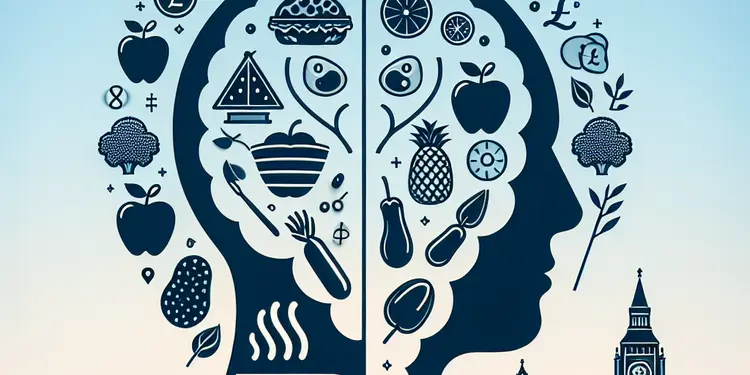
How do eating disorders affect mental health?
Relevance: 41%
-
Are eating disorders only about food?
Relevance: 41%
-

Can lifestyle changes help manage pain and fever during pregnancy?
Relevance: 41%
-

Can a pregnancy test expire?
Relevance: 39%
-

HIV and pregnancy | NHS
Relevance: 39%
-

Is cycling safe during pregnancy?
Relevance: 39%
-
What are the early warning signs of an eating disorder?
Relevance: 39%
-
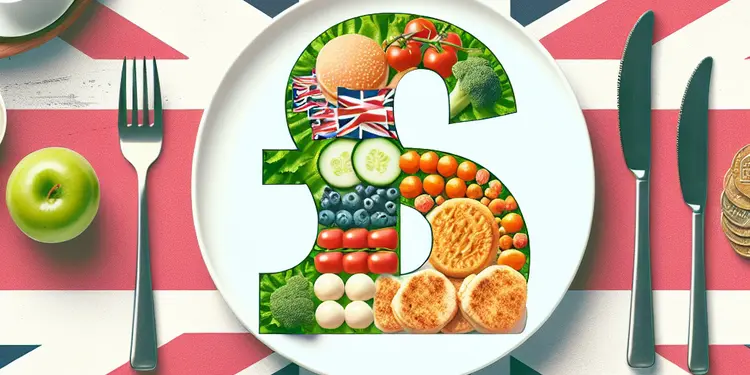
Should I consider the fat content when eating out?
Relevance: 39%
-

Is orange juice better than eating whole oranges?
Relevance: 39%
-

What are the different types of pregnancy tests?
Relevance: 38%
-

How does a pregnancy test work?
Relevance: 38%
-

Can a pregnancy test detect a miscarriage?
Relevance: 38%
-

When should I take a pregnancy test?
Relevance: 38%
-

What exercises can I do during pregnancy?
Relevance: 38%
-

Can postnatal depression affect subsequent pregnancies?
Relevance: 38%
-

Are there any exercises to avoid during pregnancy?
Relevance: 37%
-

How does exercise benefit pregnancy?
Relevance: 37%
-

Can I continue running during pregnancy?
Relevance: 37%
-

Can I do abdominal exercises during pregnancy?
Relevance: 37%
Nutrition for Pregnancy: What to Eat
Essential Nutrients
During pregnancy, a balanced diet enriched with essential nutrients is vital for the health of both the mother and the growing baby. Key nutrients include folic acid, iron, calcium, protein, and DHA (an omega-3 fatty acid). Folic acid reduces the risk of neural tube defects and can be found in leafy vegetables, fortified cereals, and supplements. Iron supports the baby's blood supply and can be sourced from lean meats, beans, and green vegetables. Calcium is necessary for the development of strong bones and teeth and can be obtained from dairy products, fortified plant-based milks, and leafy greens. Protein is crucial for fetal growth and is present in meat, fish, eggs, and legumes. DHA supports brain and eye development and is abundant in oily fish such as salmon and mackerel.
Balanced Diet
Maintaining a balanced diet means consuming a variety of foods from all food groups. Include whole grains like wholemeal bread, brown rice, and oats, which provide essential carbohydrates and fibre. Fresh fruits and vegetables should occupy a significant portion of daily meals, offering vitamins, minerals, and antioxidants. Healthy fats, found in nuts, seeds, and avocados, support overall health and development. Adequate fluid intake is also crucial; pregnant women should aim to drink about 1.6 liters (8 glasses) of water daily.
Foods to Avoid
Certain foods pose risks during pregnancy and should be avoided to ensure safety. Unpasteurised milk and cheese can contain harmful bacteria such as Listeria, which is dangerous for pregnant women. Raw or undercooked meats and eggs can carry salmonella and should be thoroughly cooked. Fish with high levels of mercury, such as swordfish and shark, should be avoided. Caffeine intake should be limited to 200mg per day, equivalent to about two cups of coffee, as excessive consumption is linked to an increased risk of miscarriage.
Supplements
While a healthy diet covers most nutritional needs, certain supplements are recommended by health professionals in the UK. Folic acid supplements of 400 micrograms are advised until the 12th week of pregnancy. Vitamin D, crucial for bone health, is recommended at 10 micrograms daily during pregnancy and breastfeeding periods. Iron supplements might be necessary if dietary intake is insufficient or if the expectant mother is diagnosed with anaemia. Always consult with a healthcare provider before beginning any supplement regimen.
Special Considerations
Pregnant women with specific dietary needs, such as vegetarians or those with food allergies, should pay extra attention to alternative sources of essential nutrients. For vegetarians, iron can be obtained from beans, lentils, and fortified cereals, while protein can be sourced from legumes, tofu, and dairy products. Those with lactose intolerance should opt for calcium-fortified plant milks and leafy greens. Seeking advice from a registered dietitian can help tailor a diet that meets all nutritional requirements without compromising health.
Nutrition for Pregnancy: What to Eat
Important Nutrients
When you are pregnant, eating the right foods is important for you and your baby. You need certain nutrients to stay healthy. These include folic acid, iron, calcium, protein, and DHA. - **Folic acid** helps prevent some birth problems. You can find it in leafy veggies, breakfast cereals with added nutrients, and vitamins. - **Iron** helps your baby's blood. You can get it from lean meat, beans, and green veggies. - **Calcium** helps your baby's bones and teeth. It is in milk, dairy products, and green leafy veggies. - **Protein** helps your baby grow. Eat meat, fish, eggs, and beans to get protein. - **DHA** helps your baby's brain and eyes. Find it in fish like salmon and mackerel.
Eating a Balanced Diet
A balanced diet means eating different kinds of foods. - Eat whole grains like brown bread, brown rice, and oats. They give you energy and keep you full. - Eat lots of fruits and veggies every day. They give you vitamins and minerals. - Eat healthy fats like those in nuts, seeds, and avocados. They keep you healthy. - Drink plenty of water. Aim for about 8 glasses each day.
Foods to Avoid
Some foods can hurt you or your baby during pregnancy. - Do not drink unpasteurised milk or eat certain cheeses. They might have bad germs. - Avoid raw or undercooked meat and eggs; they can have germs like salmonella. - Do not eat fish like swordfish and shark because they have too much mercury. - Limit caffeine to about two cups of coffee a day. Too much can be harmful.
Taking Supplements
Sometimes food is not enough, and you might need vitamins. - Take 400 micrograms of folic acid until you are 12 weeks pregnant. - Take 10 micrograms of Vitamin D every day when pregnant and breastfeeding. - If your iron is low, your doctor might suggest iron tablets. Always talk to your doctor before taking any vitamins or supplements.
Special Tips
If you eat differently, like being vegetarian or having food allergies, find other ways to get the nutrients you need. - Vegetarians can get iron from beans and cereals with added nutrients. - If you do not eat dairy, drink plant milks with added calcium and eat green veggies. Getting help from a dietitian can be useful to ensure you are eating well for you and your baby.
Frequently Asked Questions
What are the essential nutrients I should focus on during pregnancy?
How much weight should I expect to gain during pregnancy?
Is it safe to eat fish during pregnancy?
Why is folic acid important during pregnancy?
Can I drink caffeine while pregnant?
Are there any foods I should avoid during pregnancy?
How important is hydration during pregnancy?
Can I continue to exercise during pregnancy?
Are cravings normal during pregnancy?
Should I take prenatal vitamins?
How much protein do I need during pregnancy?
Is it safe to eat deli meats during pregnancy?
Can I eat nuts during pregnancy?
How much calcium do I need during pregnancy?
Is it okay to eat spicy food during pregnancy?
What important foods should I eat when I am pregnant?
When you are having a baby, it is very important to eat the right foods. Here are some foods that are really good for you and your baby:
- Vitamins and Minerals: These help your body stay healthy. You can find them in fruits and vegetables.
- Protein: This helps your baby grow. Foods with protein include meat, beans, and eggs.
- Calcium: This helps your baby’s bones get strong. Milk and cheese have lots of calcium.
- Iron: This makes sure you have healthy blood. You can get iron from meat and green leafy vegetables.
- Folate: This helps your baby develop well. You can find folate in foods like oranges, nuts, and leafy greens.
Try to eat a mix of these foods every day. Remember to drink lots of water too. It's always good to talk to your doctor or someone who can help with eating plans for more guidance.
How much weight will I gain when I have a baby?
Can you eat fish when you are having a baby?
Why do you need folic acid when you are going to have a baby?
Folic acid is like a special vitamin. It helps the baby's brain and spine grow the right way.
Doctors say to take folic acid before you are pregnant and in the first few months of being pregnant.
You can find folic acid in some foods, like green veggies and bread. You can also take a little pill with folic acid in it.
Ask your doctor if you need to take folic acid pills. They can help you know what to do.
Can I have drinks with caffeine when I am pregnant?
It is important to be careful with caffeine when you are pregnant. Caffeine is found in coffee, tea, chocolate, and some soft drinks.
Most doctors say it's best to have only a little bit of caffeine each day. This could be about one small cup of coffee.
Try drinking water, fruit juice, or milk instead. These are healthy choices.
If you're not sure, you can talk to your doctor or nurse. They can help you with what to eat and drink.
If it's hard to remember, you can write down what you drink each day. This helps you keep track.
Are there any foods I should not eat when I am pregnant?
Why is drinking water important when you're pregnant?
Can I exercise when I am pregnant?
Yes, you can still do exercise when you have a baby in your tummy. Exercise can help make you feel good. It can give you more energy.
You should talk to your doctor before you start. They will tell you what is safe for you.
Here are some helpful tips:
- Walk: Walking is a good and easy way to exercise.
- Swim: Swimming is gentle and helps your body feel light.
- Yoga: Try yoga for stretching and breathing.
- Rest: Remember to take breaks and rest when you need to.
Always stop if something hurts or if you feel bad.
Do you feel like eating different foods when you are pregnant?
Should I take vitamins when I am going to have a baby?
How much protein do I need when I am pregnant?
When you are pregnant, eating the right amount of protein is important. Protein helps your baby grow.
Here are some simple ways to get protein:
- Eat eggs, chicken, or fish.
- Try beans or lentils.
- Have some nuts or seeds.
- Drink milk or eat cheese and yogurt.
If you need help, ask a doctor or nurse. They can tell you how much protein is right for you.
Can you eat deli meats when you are pregnant?
It is best to check if it is safe to eat deli meats during pregnancy. It is a good idea to talk to your doctor. Healthy eating helps you and your baby.
Here are some tips:
- Make sure deli meats are cooked until steaming hot.
- Avoid cold deli meats. Heat them first.
- Ask your doctor or nurse for advice.
Use a magnifying glass or a reading app to help if needed.
Can I eat nuts when I am pregnant?
Yes, you can eat nuts when you are having a baby. Nuts are healthy and give you good energy.
If you are not allergic to nuts, it is safe to eat them.
If you are worried or have questions, talk to your doctor or nurse. They can help you.
You can try using pictures or videos to learn more about healthy foods when pregnant.
How much calcium do I need when I am pregnant?
When you are pregnant, your body needs more calcium to help your baby grow. Make sure you have enough calcium every day. Here are some tips to help you:
- Drink milk or eat cheese and yogurt.
- Eat green leafy vegetables like broccoli.
- Ask your doctor or nurse if you need a calcium pill.
If you need help, ask someone you trust. They can help you choose good foods or talk to your doctor. It's important to take care of your body and your baby.
Can I eat spicy food when I am pregnant?
It is safe to eat spicy food when you are pregnant. But some people might get an upset tummy or heartburn. If that happens to you, try to eat less spicy food.
If you need help reading, you can ask someone to read it with you or use a reading app that reads out loud.
Useful Links
This website offers general information and is not a substitute for professional advice.
Always seek guidance from qualified professionals.
If you have any medical concerns or need urgent help, contact a healthcare professional or emergency services immediately.
Some of this content was generated with AI assistance. We’ve done our best to keep it accurate, helpful, and human-friendly.
- Ergsy carfully checks the information in the videos we provide here.
- Videos shown by Youtube after a video has completed, have NOT been reviewed by ERGSY.
- To view, click the arrow in centre of video.
- Most of the videos you find here will have subtitles and/or closed captions available.
- You may need to turn these on, and choose your preferred language.
- Go to the video you'd like to watch.
- If closed captions (CC) are available, settings will be visible on the bottom right of the video player.
- To turn on Captions, click settings .
- To turn off Captions, click settings again.
More Items From Ergsy search
-

Nutrition for Pregnancy: What to Eat
Relevance: 100%
-
What is an eating disorder?
Relevance: 53%
-

Are there any nutrition guidelines for Hyrox participants?
Relevance: 51%
-
Can eating disorders be treated?
Relevance: 51%
-

Eating disorders: treatment
Relevance: 50%
-

The treatment approach for an eating disorder
Relevance: 49%
-
Are there preventative measures for eating disorders?
Relevance: 47%
-
What is an Eating Disorder?
Relevance: 46%
-
What are the main types of eating disorders?
Relevance: 46%
-
Is it possible to recover from an eating disorder?
Relevance: 45%
-
What is the role of therapy in treating eating disorders?
Relevance: 44%
-

What is the impact of eating disorders on physical health?
Relevance: 44%
-
How can someone seek help for an eating disorder?
Relevance: 44%
-

Jess Rann - Specialist Eating Disorders Dietitian
Relevance: 44%
-
What are common symptoms of eating disorders?
Relevance: 43%
-

How soon can a pregnancy test detect pregnancy?
Relevance: 42%
-
How are eating disorders diagnosed?
Relevance: 42%
-

What is a pregnancy test?
Relevance: 42%
-

Gestational Diabetes during pregnancy
Relevance: 41%
-

What if my pregnancy test is positive?
Relevance: 41%
-

Can weight loss drugs lead to nutritional deficiencies?
Relevance: 41%
-

How do eating disorders affect mental health?
Relevance: 41%
-
Are eating disorders only about food?
Relevance: 41%
-

Can lifestyle changes help manage pain and fever during pregnancy?
Relevance: 41%
-

Can a pregnancy test expire?
Relevance: 39%
-

HIV and pregnancy | NHS
Relevance: 39%
-

Is cycling safe during pregnancy?
Relevance: 39%
-
What are the early warning signs of an eating disorder?
Relevance: 39%
-

Should I consider the fat content when eating out?
Relevance: 39%
-

Is orange juice better than eating whole oranges?
Relevance: 39%
-

What are the different types of pregnancy tests?
Relevance: 38%
-

How does a pregnancy test work?
Relevance: 38%
-

Can a pregnancy test detect a miscarriage?
Relevance: 38%
-

When should I take a pregnancy test?
Relevance: 38%
-

What exercises can I do during pregnancy?
Relevance: 38%
-

Can postnatal depression affect subsequent pregnancies?
Relevance: 38%
-

Are there any exercises to avoid during pregnancy?
Relevance: 37%
-

How does exercise benefit pregnancy?
Relevance: 37%
-

Can I continue running during pregnancy?
Relevance: 37%
-

Can I do abdominal exercises during pregnancy?
Relevance: 37%


